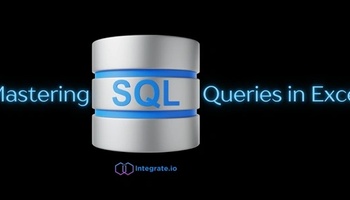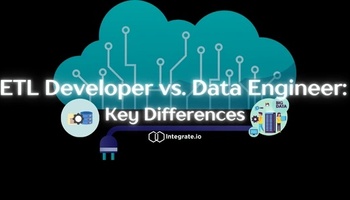Master Data Management is a critical component of enterprise data management, yet getting MDM initiatives off the ground and finding the right tools for support is a challenge. However, with the advent of new technologies, businesses are finding more options available than ever before. In this guide, we'll show you how you can support your Master Data Management efforts.
The Importance of Master Data Management
MDM provides the ability to consolidate information from multiple sources, which is helpful for several reasons.
The first reason has to do with accuracy and consistency. Businesses often have multiple systems containing duplicated or overlapping data sets, making it difficult to know what's accurate without checking each one individually. This can be time-consuming and costly — especially if there are errors in any source that will repeat throughout all other copies.
Another reason comes down to compliance issues around customer privacy laws such as GDPR in Europe. Many governments require businesses operating within their borders to keep customer information in separate silos to protect citizens' data. Companies that fail to meet compliance standards could receive fines, or their customers could sue them for damages the breach caused.
Master Data Management provides a solution that allows all critical business entities and domains, such as customers, products, and employees, to live together under one roof without duplicated information. This makes it easy (and mandatory) for organizations with requirements around GDPR compliance; it also helps streamline other business processes like data integration, master reporting, and analytics initiatives while ensuring you have accurate records at hand when needed.
How to Support Master Data Management Efforts
You can go about supporting your MDM initiatives in several ways, including:
- Build strong relationships between teams.
- Share access to all relevant information when making decisions for your company.
- Have dedicated customer success managers who guide your team through installing and implementing various MDM tools.
- Have a good understanding of what types of data help support different initiatives (i.e., transactional vs. master data).
Different Data Types for Supporting Various Initiatives
Supporting your enterprise data management initiatives falls into two major categories: transactional and master data. Understanding how you can use each type lets you make informed decisions that benefit your entire company.
- Transactional records represent real-time information that helps companies operate more efficiently across the entire organization. This includes data related to revenue, expenses, and other areas of the company with ongoing transactions.
- Master Data is essentially information about your most essential entities, such as customers, products, or employees. It can apply to different purposes within your business, but it should provide you with insights into how certain aspects work to make better decisions down the line. The more accurate the data, the better-equipped businesses will be with making positive changes throughout their organizations, including increasing sales.
Benefits of Data Integration
The top benefits of data integration include:
- Having the ability to focus on other business aspects because data tools help automate many challenging processes.
- Connecting different departments so they can work together more effectively and improve communication.
- Accessing the right tools faster so your business is more agile and responsive.
- Combining multiple data sources to make better business decisions.
- Ensuring the most up-to-date information on how different aspects of your organization work, which could result in fewer errors and more accurate reporting.
Data Integration Tools to Consider
Many data integration tools on the market can help you connect various aspects of your business. If you want to ensure that your employees have only the most accurate information, consider the following technologies:
Data Connectors
These tools will allow you to remove duplicate or incorrect records within a particular system by synchronizing sources with matching schemas. They're valuable for companies that need to update specific records across multiple systems where it's difficult (or impossible) to do manually.
ETL Tools
This type of tool ensures that your team processes incoming transactions as quickly as possible while removing any duplicates or inaccurate records. ETL tools are handy for companies that have multiple systems that process data in different ways.
Data Virtualization
This technology is a virtual data layer for connecting various data sources and systems. It creates a single source of data for all employees within an organization, helping them access the most accurate information in real-time.
Without the effective implementation of master data management technologies, enterprises won't scale efficiently because they'll struggle with fragmented information across departments and channels. Yet, implementing MDM capabilities will give businesses insights into how specific processes work. This makes it easier for companies to identify areas of improvement while helping reduce costs associated with staff turnover.
The Future of Support for Master Data Management
Augmented data management capabilities are expected to play a significant role in the future of MDM, particularly with machine learning and predictive analytics that help companies make better decisions based on insights derived from different data sources.
Supporting your master data management becomes even more critical as data plays an increasingly significant role across various business aspects. Automation and AI will also reduce the need for human intervention for basic data processing and gathering requirements, making it possible for companies to focus on more critical and time-consuming tasks.
Integrate.io and Master Data Management
Many businesses rely on the accuracy and insights their data provides to make better decisions that can help them grow. Integration tools and master data management will make it easier for companies to achieve their goals by ensuring that data flows seamlessly throughout the organization — regardless of where it originates. For more information on master data management and how Integrate.io can help, click the link here to schedule a call with one of Integrate.io's experts.







